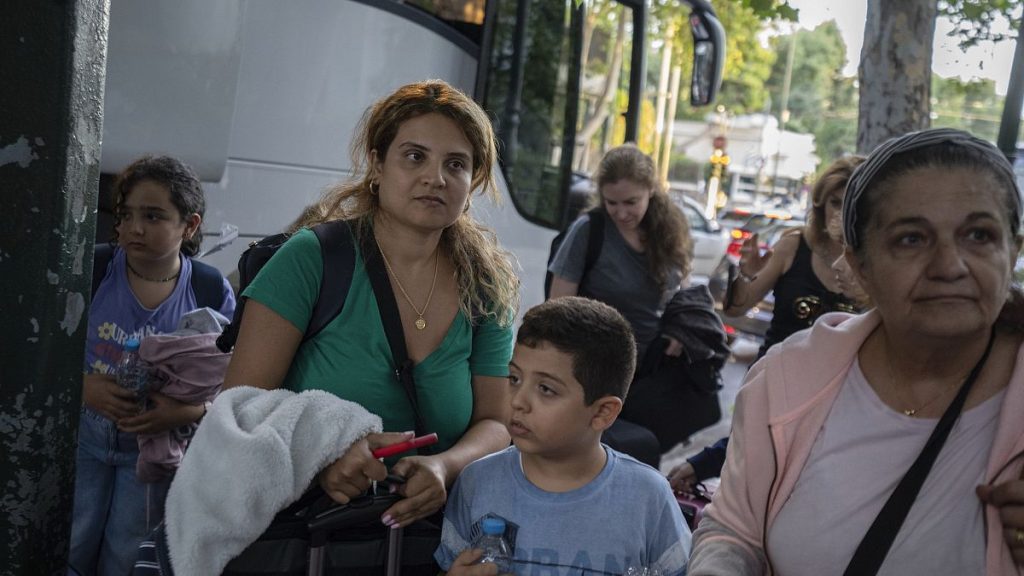Several European countries, including Germany, Greece, Spain, and France, have been evacuating their citizens from Lebanon amidst escalating hostilities between Israel and Hezbollah. Germany flew 130 citizens out on a military plane, while Greece evacuated 38 Cypriots and 22 Greeks. Spain brought 250 people home on two military planes, and France has also started evacuating its citizens. Many evacuees spoke of the fear and difficult conditions they experienced in Lebanon, with some mentioning the sound of bombs and planes constantly overhead.
The evacuations come as the Israeli military issued fresh evacuation orders for communities in southern Lebanon, potentially signaling a widening of its ground operation against Hezbollah. Residents of Nabatieh and other communities north of the Litani River have been instructed to leave, indicating a possible escalation in the conflict. The security situation in Lebanon has prompted countries like Turkey to set up emergency hotlines for citizens to request evacuations, with Turkish evacuees describing the violence as a bloodbath and expressing relief to be leaving.
Germany has sent military planes to evacuate its citizens from Lebanon, as the Foreign Ministry mentioned sending aid, particularly medical equipment, into the country. Greece also dispatched a military transport plane to Beirut to bring home Greek and Cypriot nationals who wished to leave. Spain and France have been conducting evacuations, with France negotiating additional flights with the Lebanese national airline to bring more citizens back. Air France has suspended passenger flights to Lebanon until October 8th, amid the escalating violence and instability in the region.
The evacuations have seen hundreds of citizens from various countries fleeing Lebanon to seek safety in their home countries. Spanish evacuees spoke of the intensity of the bombings and fear they experienced in Beirut, while Turkish evacuees described the situation as a bloodbath. The Israeli military’s evacuation orders in southern Lebanon have heightened concerns of a wider regional conflict, prompting EU countries to prioritize the safety of their citizens and evacuate them as quickly as possible.
While the evacuations provide a sense of relief to those leaving Lebanon, the situation remains tense and uncertain. The ongoing conflict between Israel and Hezbollah, as well as the escalating violence in the region, has led to fears of a wider war in the Middle East. EU countries continue to monitor the situation closely and evacuate their citizens, with some countries suspending flights to Lebanon until conditions improve. The safety and well-being of citizens remain a top priority as the situation in Lebanon and the surrounding region continues to evolve.


